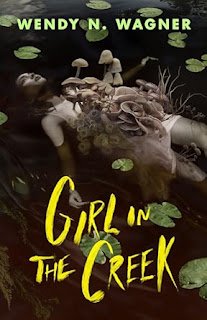Coming soon from St. Martin's Press: Greenwich: A Novel by Kate Broad.

About the book, from the publisher:
Summer, 1999. Rachel Fiske is almost eighteen when she arrives at her aunt and uncle’s mansion in Greenwich, Connecticut. Her glamorous aunt is struggling to heal from an injury, and Rachel wants to help―and escape her own troubles back home. But her aunt is oddly spacey and her uncle is consumed with business, and Rachel feels lonely and adrift, excluded from the world of adults and their secrets. The only bright spot is Claudia, a recent college graduate, aspiring artist, and the live-in babysitter for Rachel’s cousin. As summer deepens, Rachel eagerly hopes their friendship might grow into more.Visit Kate Broad's website.
But when a tragic accident occurs, Rachel must make a pivotal choice. Caught between her desire to do the right thing and to protect her future, she’s the only one who knows what really happened―and her decision has consequences far beyond what she could have predicted.
A riveting debut novel for readers of Celeste Ng and Liane Moriarty, Greenwich explores the nature of desire and complicity against the backdrop of immense wealth and privilege, the ways that whiteness and power protect their own, and the uneasy moral ambiguity of redemption.
--Marshal Zeringue












































